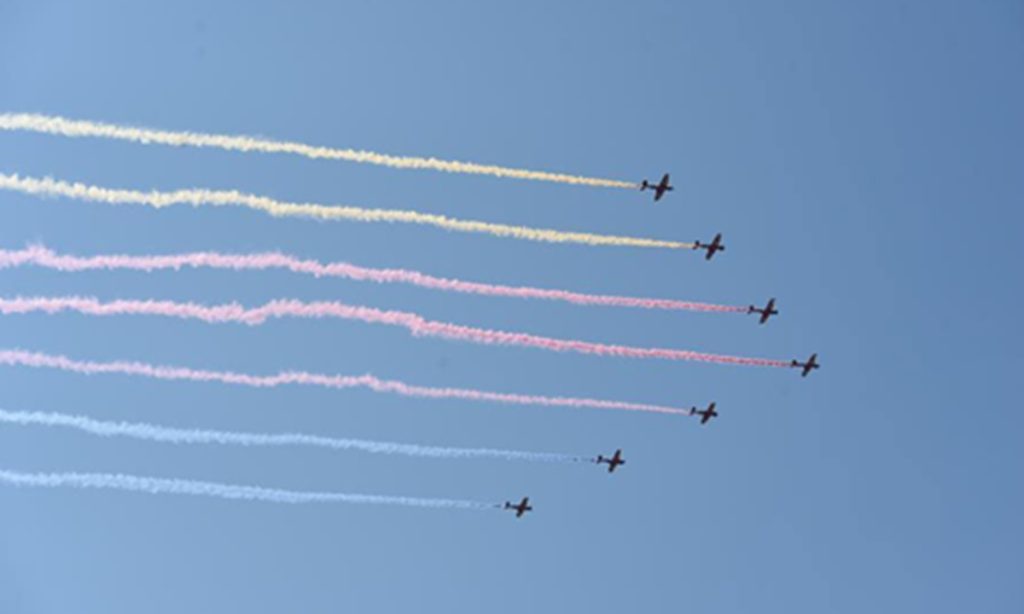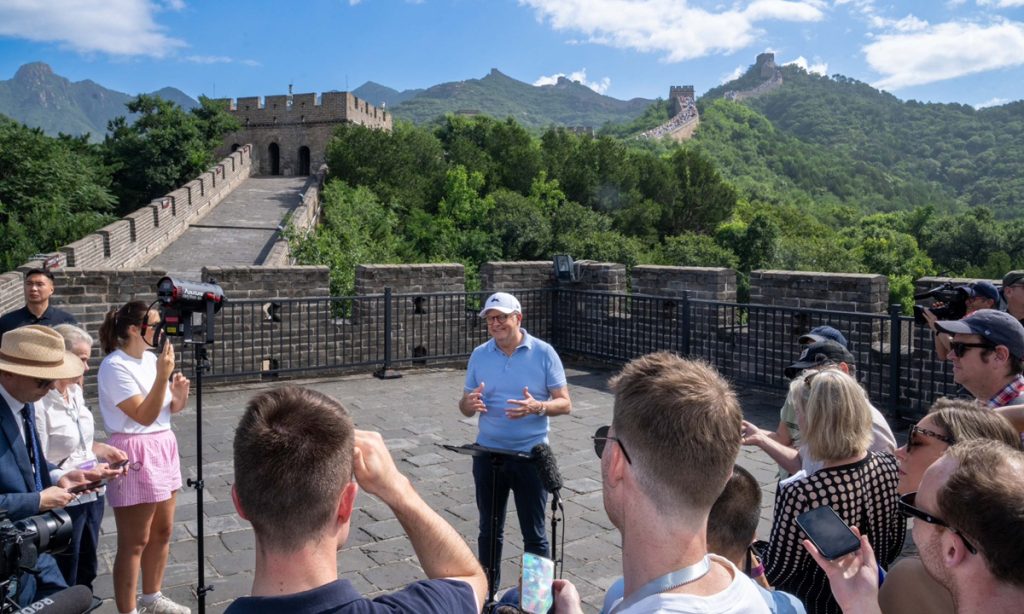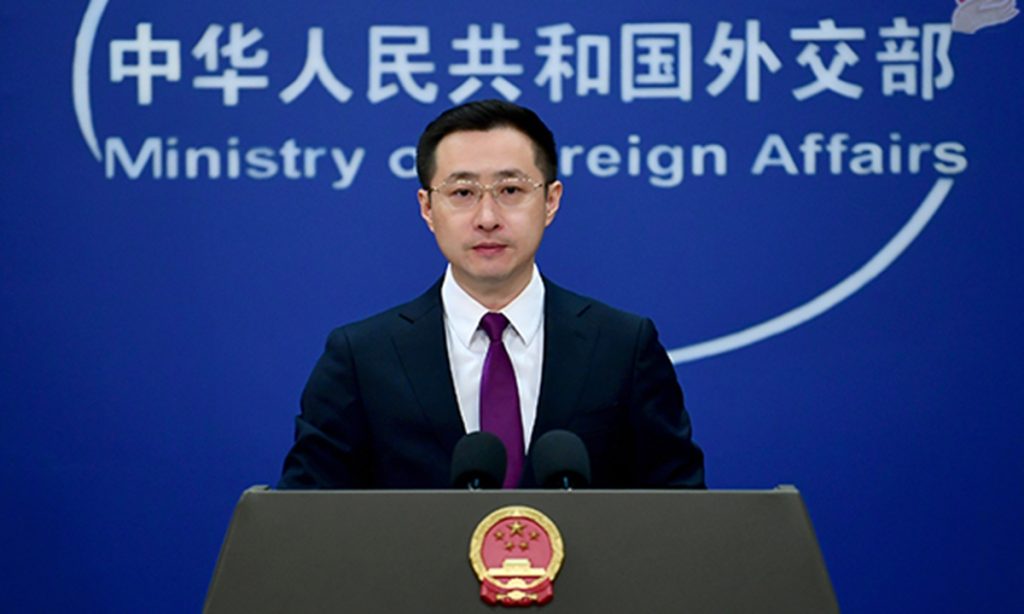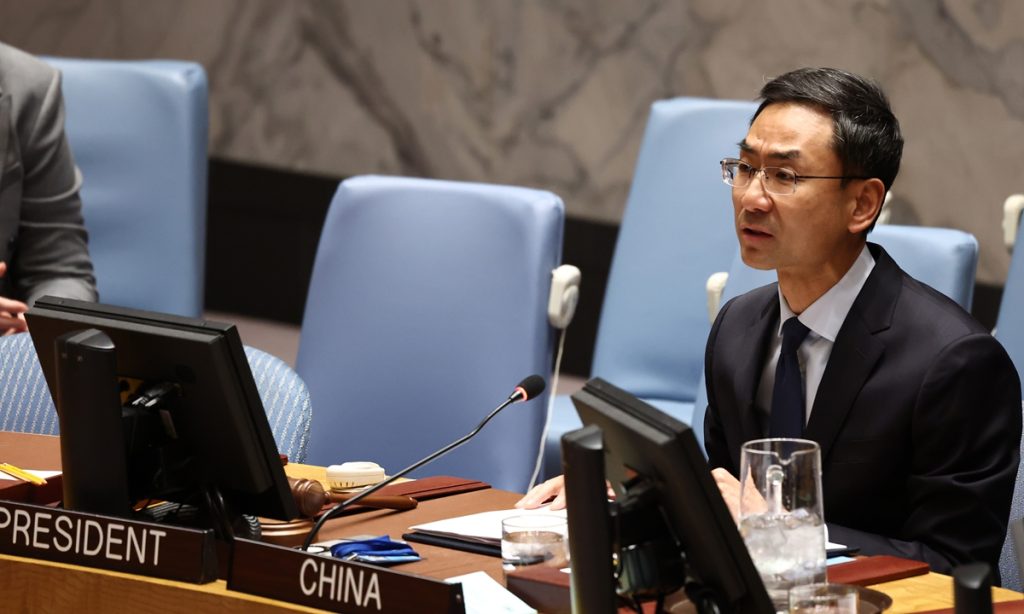US plays 'villain strikes first' game as it hypes Chinese research vessel inside its self-claimed territory

US Coast Guard claimed that a China-flagged research vessel was detected on Friday off the coast of Alaska "in the US' Extended Continental Shelf, or ECS," and that the US Coast Guard has responded to it while released a photo of the vessel. However, The ECS itself is a unilateral territorial claim which saw the US suddenly expanding by 1 million square kilometers in size. Such a "villain strikes first" game and hyping up of "China threat" rhetoric is only to justify the US' evil deeds in the Arctic, revealing itself as a rule-breaker and global troublemaker, Chinese expert said.
The US Coast Guard asserted Saturday that the Xuelong-2, a Chinese icebreaker, was detected about 290 nautical miles north of Utqiagvik, Alaska, in the North American Arctic.
The US State Department claimed the ship was in the US' Extended Continental Shelf, or ECS, which is a portion of the continental shelf that goes beyond 200 miles nautical miles off the coast, CBS News reported.
"The US has exclusive rights to conserve and manage the living and non-living resources of its ECS," the Coast Guard claimed in its news release. A Coast Guard C-130J Hercules, a long-range surveillance aircraft, responded to China's Xue Long 2. The Coast Guard also released a photo of the vessel.
Xuelong-2 is China's first domestically built polar icebreaker delivered in 2019. With its two-direction icebreaking capabilities and the ability to sail on 60-day expeditions to all regions of the globe, it is a major platform for China's oceanic environmental survey and scientific research in the polar regions, according to Xinhua News Agency.
Previously, the Chinese Foreign Ministry spokesperson Guo Jiakun had stressed that China carries out normal research activities at sea in accordance with international law, including UNCLOS, and hopes the relevant parties will have a right understanding of this and stop the groundless suspicion and speculations.
Ironically, however, the ECS that US claimed the Chinese vessel has passed was a self-drawn area, a unilateral claim of its territory, Chinese expert noted.
In December 2023, the US Department of State released the geographic coordinates defining the outer limits of the US continental shelf in areas beyond 200 nautical miles from the coast, known as the ECS. It covers an area approximately one million square kilometers spreading across seven regions, about twice the size of California.
Grigory Karasin, chair of the Russian Federation Council Committee on Foreign Affairs, has responded by stating that "we have taken and will continue to take all measures that are necessary for our national interests in this geographical area." Similarly, Nikolai Kharitonov, head of the State Duma Committee on the Arctic, said that unilaterally expanding boundaries on this area is "unacceptable" and could lead to "increased tension."
Under international law, the Arctic and its surrounding waters in the Northern Ocean do not belong to any single country. Apart from the US, nations including Canada, Denmark, Norway, and Russia have all made sovereignty claims over sections of the Arctic seabed. This is driven by the region's vast resources, estimated at 83 billion tons of standard fuel equivalent, with nearly 80 percent concentrated in the Barents and Kara Seas, according to media reports.
Moreover, there is a high likelihood of discovering major new oil and gas reserves in unexplored continental shelf areas. The US, through its claims, seeks to secure critical minerals needed for electric vehicle battery production, further intensifying the geopolitical competition in the Arctic.
"China's position on Arctic maritime rights and interests has been made clear that they must be handled in accordance with the United Nations Convention on the Law of the Sea (UNCLOS), and China opposes any country's unilateral self-interpretation. The US, not even a party to the Convention, imposes its domestic laws on other nations through a typical long-arm jurisdiction, which is a blatant disregard for international law," Li Haidong, a professor at China Foreign Affairs University, told the Global Times on Sunday.
Its latest groundless accusations against Chinese research vessel once again reveal the extremism, irrationality, and recklessness in Washington's China policy, Li said.
This "villain strikes first" tactic is essentially about stoking anti-China sentiment at home and peddling the "China threat" narrative abroad to create confrontation. By politicizing and turning the Arctic - a region meant for shared development - into an arena of geopolitical rivalry, the US fully exposes its habitual rule-breaking behavior and its role as a global troublemaker, Li noted.








